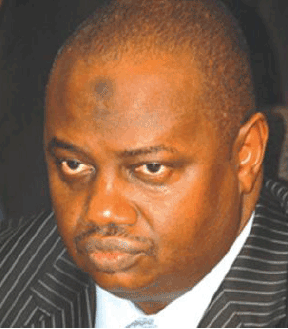Plea bargaining in Nigeria’s criminal justice system has generated a lot of debate on its applicability and acceptability in the country’s judicial system. While some posit that the adoption of plea bargain in resolving some cases should be maintained, others argue that its adoption is legalising illegality in Nigeria’s judicial System. Senior Correspondent, JUDE KENNETH, x-rays the issue.

The controversy trailing the concept of plea bargaining in the nation’s criminal justice system is not likely to end soon. Those who are kicking against it claim that it is alien to our legal system, while those in support of it maintain that it is a better option of resolving high profile criminal cases.
What is plea bargain?
According to Black’s Law Dictionary, plea bargain is “the process whereby the accused and the prosecutor in a criminal case work out a mutually satisfactory disposition of the case subject to court approval. It usually involves the defendant’s pleading guilty to a lesser offence or to only one or some of the counts of a multi-count indictment in return for a lighter sentence than that possible for the graver charge.”
Kinds of plea bargain
Specifically, there are three kinds of plea bargain: the ‘Charge Bargain’ which entails the prosecutor allowing the accused to plead guilty to a lesser charge or to some of the charges preferred against him or her, which typically occur or negotiated at the pre-trial stage. A ‘Sentence Bargain’ is offered when the defendant is told in advance what the sentence will be if he or she pleads guilty. The third but rare type is ‘Fact Bargain’ which involves the defendant admitting certain facts in return for an agreement, so that the prosecutor would not introduce the admitted facts into evidence before the trial court.
In Nigeria’s criminal justice system
It should be noted that plea bargaining is not expressly recognised in our criminal justice system, but what is obtainable and presently adopted by the Economic and Financial Crimes Commission (EFCC) is a process wherein the accused person changes his plea of ‘not guilty’ to ‘guilty’ after which the prosecution offers such person some concession by way of amending his charge.
Ironically, it was white collar crime that brought the concept of plea bargaining into public consciousness in our judicial system. Since its introduction, controversy has continued to trail its origin and applicability in the administration of justice in Nigeria, especially when EFCC Chairman, Ibrahim Lamorde, submitted a bill to the National Assembly to formally legalise the controversial concept of plea-bargaining.
Lamorde disclosed the information while delivering a paper sometime ago in Abuja, during a training programme organised by the National Association of Judiciary Correspondents (NAJUC), Abuja branch, in collaboration with Open Society Justice Initiative (OSJI) and Settlement House.
He then said: “It should be noted that except in Lagos State, there is no legal provision in Nigeria directly empowering the prosecution to enter into plea bargaining with persons accused of a crime.
“It is desirable, in view of the controversial nature of plea bargaining and the possibility of abuse inherent therein, to clearly regulate its practice by law. There are steps already being taken in this direction.
“It is worthy to note that there is a draft for provision of plea bargain in the Nigerian Administration of Criminal Justice Bill before the National Assembly.”
Implication
Expressing his position on the issue of plea bargaining, a public affairs analyst, Afam Osigwe, advocated the regulation of plea bargaining, adding that the accused should be made to honestly declare their assets before the prosecution could enter into any bargain with them.
Just recently, Justice Raliat Adebiyi adopted the plea bargain terms in the judgment she delivered in a case of conspiracy and armed robbery involving one Hassan Akinsanya.
The defendant, who pleaded not guilty when he was first arraigned, later made an oral application to change his plea, following the negotiations he entered into with the prosecution.
Consequently, the defendant was convicted and imposed a lesser sentence of seven years imprisonment with effect from April 4, 2011 instead of a higher sentence or even capital punishment.
Analysts posit that adoption of plea bargain in criminal cases is an illegal form of encouraging crime because the accused would not be remorseful, having negotiated for a lighter sentence and his freedom.
However, one time Chief Justice of Nigeria (CJN), Dahiru Musdapher, opposed the concept, saying that plea bargaining amounted to granting undue leniency as reward to criminals for confessing their guilt.
He said “the concept of plea bargaining is not only obnoxious as I once described it, but you will see that it had never been part of the history of our legal system, at least until it was surreptitiously smuggled into our statutory laws with the creation of EFCC.”
Justifying his position to abolish the system, which he described as obnoxious, the former CJN argued: “When I described the concept as of ‘dubious origin’, I was not referring to the original raison d’etre or the judicial motive behind its conception way back either in the United States or England in the early 19th Century; I was referring to the sneaky motive behind its introduction into our legal system.
“You will learn that plea bargain is not only ‘condemnation without adjudication’ as John Langbien described it, it is as some other critics say ‘a triumph of administrative and organisational interests over justice’.
“At its very best, it penalises the innocent who may be tempted to plead guilty to avoid being actuated by judicial default and at its most obnoxious extent, it grants ‘undue leniency’ as reward to criminals simply for pleading their guilt.
“You will see also that plea bargain is not only a flagrant subordination of the public’s interest to the interest of ‘criminal justice administration’, but worst of all, the concept generally promotes a cynical view of the entire legal system.
“I have said that our wavering disposition on the ethical standards set by your noble profession guarantees or jeopardises our peace, security and progress. And it is the reason that I have chosen to speak – with all sense of solemnity – on a matter that has continued to eat away at even the modest gains that we seem to be making in reforming both the infrastructure and the overall judicial template of the Nigerian Judiciary.”
However, Dr. Chidi Odinkalu of the National Human Rights Commission (NHRC) contended that “the claim that plea bargain was never part of any Nigerian law until 2004 when the EFCC was established is rather dubious”.
Enter the controversy
On its part, the Senate has condemned the use of plea bargaining, saying it has failed to achieve the end of justice, adding that the controversy surrounding the plea bargaining arose from its misapplication.
According to Senate Leader, Victor Ndoma-Egba, “The question is, has the plea bargaining, as it is implemented today, met the objectives of society? Why is it protecting the high and mighty?”
He posited that plea bargaining should have been deployed in helping to address the problem of prison congestion where the poor languish in jail.
“It has been used to protect the ‘big men’ in our society who have committed heinous crimes against the state, leaving out majority of other offenders who should have been captured,” he asserted.
It is on record that the EFCC adopted the plea bargain option in prosecuting former Governors Dieprieye Alamieyeseigha (Bayelsa State) and Lucky Igbinedion (Edo State), as well as the former Inspector General of Police (IGP), Tafa Balogun; former Managing Director/Chief Executive Officer of defunct Oceanic Bank Plc, Mrs. Cecilia Ibru; and Emmanuel Nwude.















